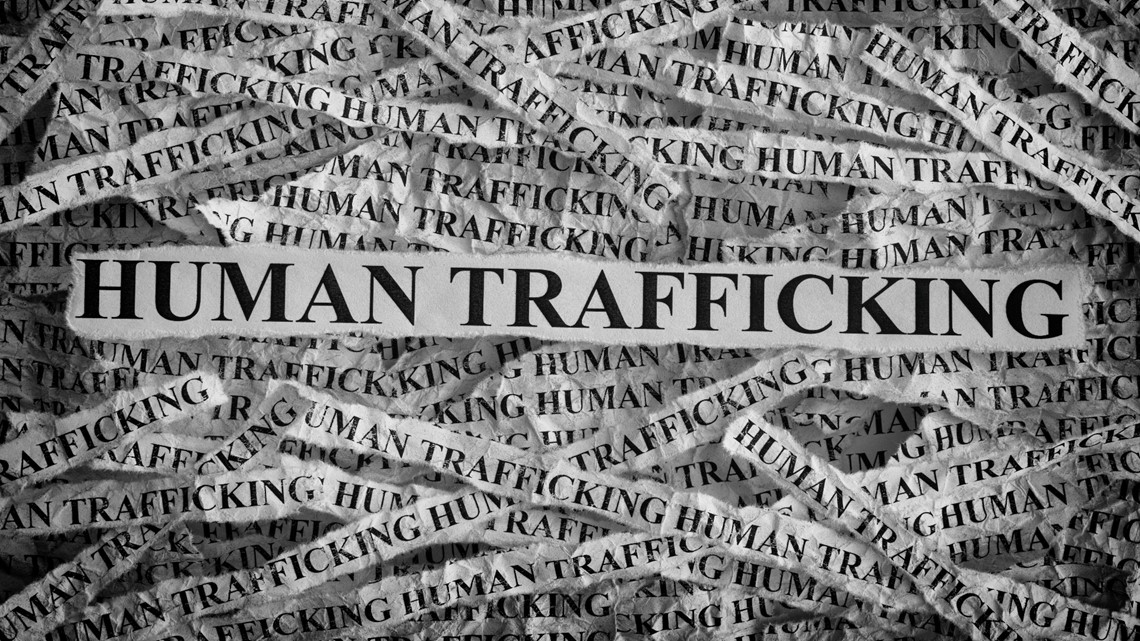HUNTSVILLE, Ala. — Human Trafficking is happening around the state of Alabama. A number of cases have been reported in Montgomery County, Birmingham, Fort Payne, Madison County, Huntsville, Albertville, Guntersville, Dothan, and Mobile.
The Alabama District Attorney's Association says that one in three teens on the street will be lured into prostitution within 48 hours of leaving home.
Young people, especially those with risk factors, are vulnerable to human trafficking. The Administration for Children and Families at the U.S. Department of Health and Human Services issued new guidance on child trafficking to child welfare systems, runaway and homeless youth programs, because of increased vulnerability to trafficking for youth who have experienced prior abuse or who have run away from home.
Traffickers are not only men; women are also perpetrators.
Traffickers represent every social, ethnic, and racial group. Various organizational types exist in trafficking, some may or may not be affiliated with large criminal organizations, bike gangs, etc..
Human trafficking deprives millions worldwide of their dignity and freedom. It undermines national security, distorts markets, and enriches transnational criminals and terrorists, and is an affront to our universal values. At-risk populations can face deceitful recruitment practices by those bent on exploiting them for labor or commercial sex.


What Is Human Trafficking?
The U.S. Department of Homeland Security defines it like this: Human trafficking involves the use of force, fraud, or coercion to obtain some type of labor or commercial sex act.
The United States recognizes two primary forms of trafficking in persons: forced labor and sex trafficking.
Merriam-Webster defines human trafficking as : (1) organized criminal activity in which human beings are treated as possessions to be controlled and exploited (as by being forced into prostitution or involuntary labor) ; (2) the business of inducing a person to perform labor or engage in prostitution through force, fraud, or coercion.
Human trafficking can include, but does not require, movement. People may be considered trafficking victims regardless of whether they were born into a state of servitude, were exploited in their hometown, were transported to the exploitative situation, previously consented to work for a trafficker, or participated in a crime as a direct result of being trafficked.
Signs that a youth may be a human trafficking victim:
- Misses school on a regular basis and/or has unexplained absences
- Frequently runs away from home
- Makes references to frequent travel to other cities or towns
- Exhibits bruises or other signs of physical trauma, withdrawn behavior, depression, anxiety, or fear
- Lacks control over her or his schedule and/or identification or travel documents
- Is hungry, malnourished, or inappropriately dressed (based on weather conditions or surroundings)
- Shows signs of drug addiction
- Has coached/rehearsed responses to questions
How Do I Report a Suspected Incidence of Human Trafficking?
Do not attempt to confront a suspected trafficker directly or alert a victim to any suspicions. It is up to law enforcement to investigate suspected cases of human trafficking.
To report an immediate emergency
- Call 911 or contact your local police department or emergency access number.
To report sexually exploited or abused minors
- If a child is in urgent need of assistance, contact law enforcement or child protective services to report abuse, neglect, or exploitation of a child. Contact the Childhelp National Child Abuse Hotline to speak to professional crisis counselors who can connect a caller with a local number to report abuse: 1-800-4-A-CHILD (1-800-422-4453).
- Call the National Center for Missing and Exploited Children’s (NCMEC) hotline at 1-800-THE-LOST (1-800-843-5678).
- Report incidents at http://www.cybertipline.org.
To report suspected human trafficking crimes or to get help from law enforcement
- Call toll-free (24/7) U.S. Immigration and Customs Enforcement at 1-866-347-2423.
- Submit a tip online at http://www.ice.gov/tips.
To report suspected trafficking crimes, get help, or learn more about human trafficking from a nongovernmental organization
- Call the toll-free (24/7) National Human Trafficking Resource Center at 1-888-3737-888 (1-888-373-7888).
- Text HELP or INFO to BeFree (233733).
- Submit a tip online at http://www.traffickingresourcecenter.org/.
To learn about services for victims
- U.S. Department of Health and Human Services, Administration for Children and Families Services: http://www.acf.hhs.gov/programs/orr/resource/services-available-to-victims-of-human-trafficking
- U.S. Department of Homeland Security, Blue Campaign, Victim Assistance Resources: http://www.dhs.gov/blue-campaign/victim-centered-approach
- U.S. Department of Justice, Office for Victims of Crime, Funded Service Providers List: http://www.ojp.usdoj.gov/ovc/grants/traffickingmatrix.html



